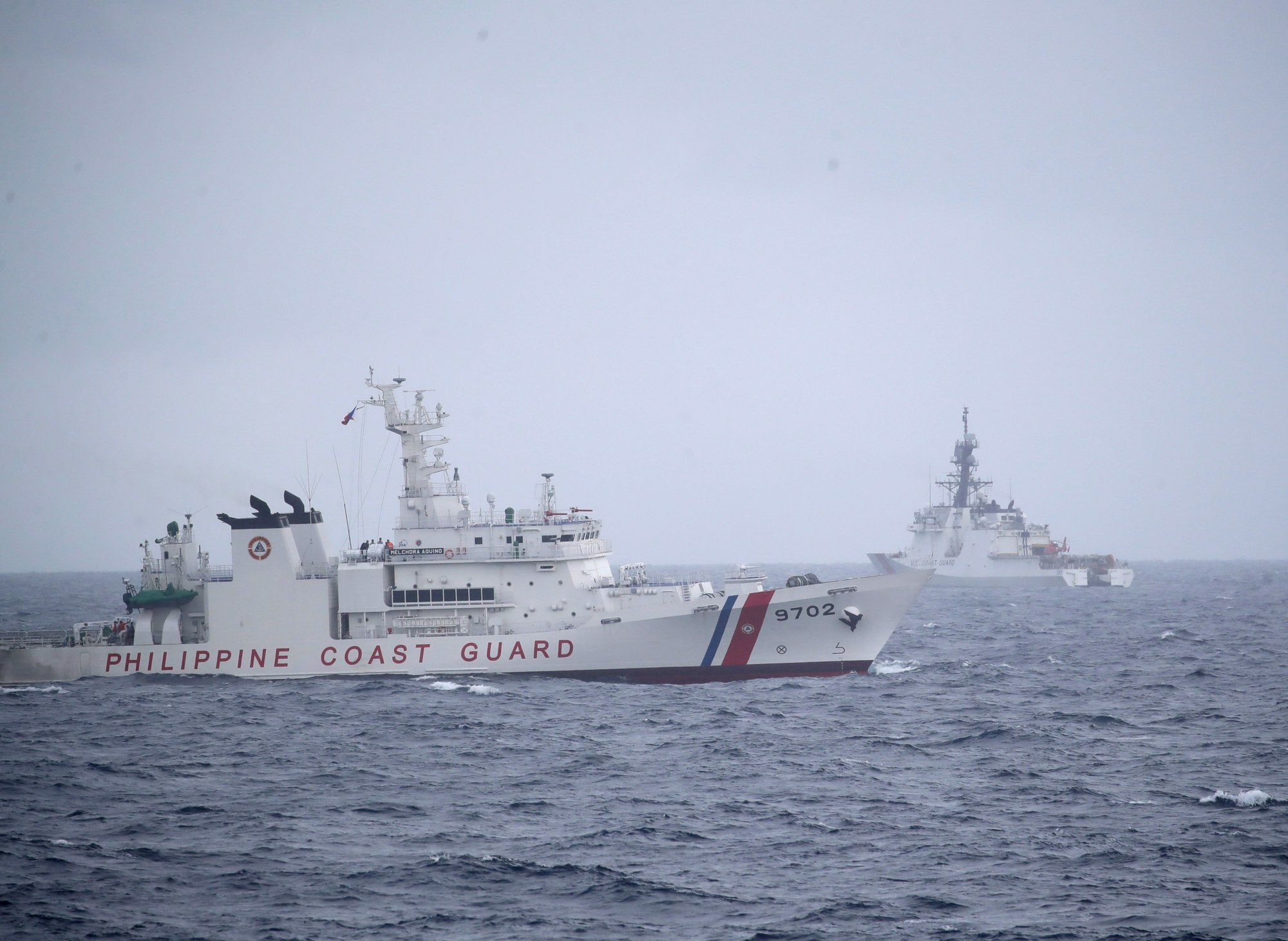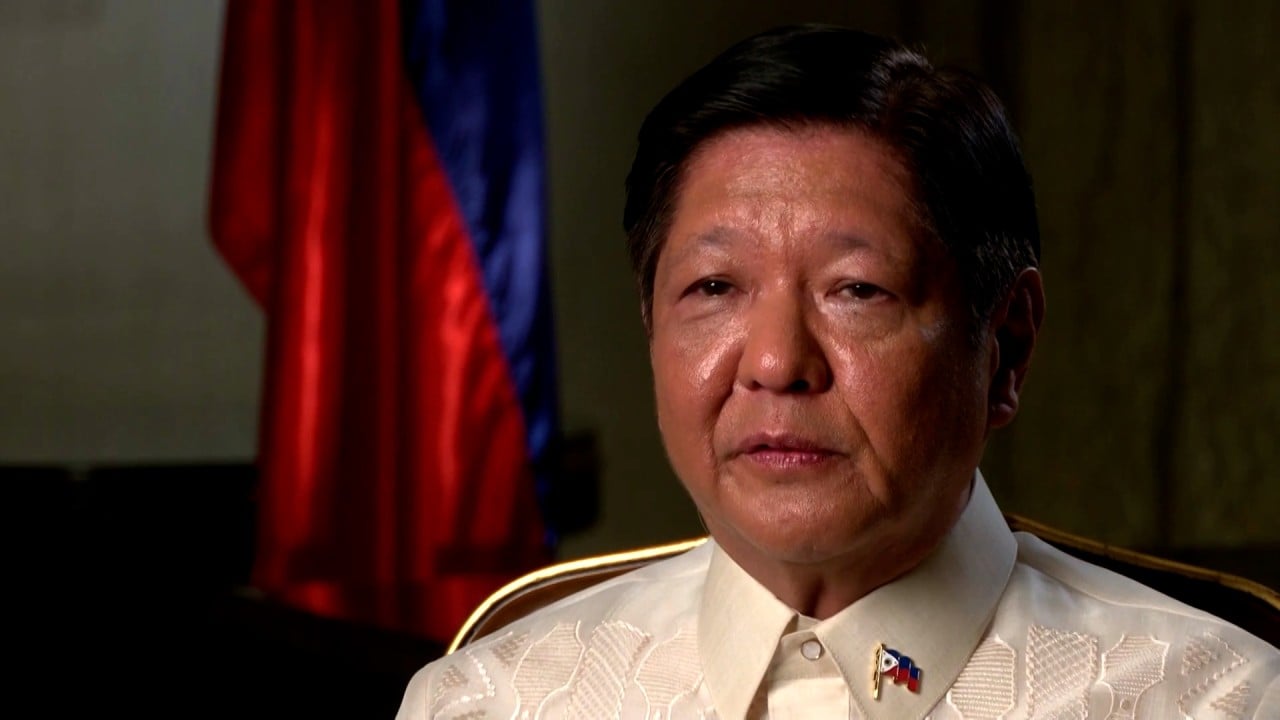
As Philippines tweaks US-China balance, ‘mixed messages’ could upset Beijing
- Senior Chinese officials are likely to be ‘unhappy’ and ‘disappointed’ over Marcos Jnr’s moves to forge closer military ties with the US without regard for China’s sensitivities
- Marcos Jnr’s US shift went against his earlier campaign promise not to seek help from Washington in the event of conflict in the South China Sea
Rommel Banlaoi, who briefly served as deputy security adviser to Marcos Jnr, criticised the president for “sending many mixed messages” and creating the impression that he “lacks foreign policy coherence”.
Senior Chinese officials, including President Xi Jinping, were likely to be “unhappy with Marcos Jnr’s recent moves to be closer militarily with the US without due regard to China’s sensitivities”, Banlaoi added.
But defence and security analyst Chester Cabalza said Marcos Jnr’s moves were that of a person who “knows his audience well” and that Manila “has now gambled its card in favour of Washington”.
“The Taiwan conundrum is a big riddle on Manila’s recognition of the one-China principle and [Marcos Jnr’s] agenda in achieving an independent foreign policy,” he said. “This security dilemma must be dealt with delicately to adjust to the needs of the Americans in our new EDCA bases while he tries to tame the Chinese leaders.”
“There must be a very strong compelling political or personal reason for this sudden change of attitude in favour of the US,” he said, suggesting that unlike China, the US could mobilise the support of the Philippine armed forces against Marcos Jnr.
Cabalza said the military was fully behind Marcos Jnr’s pivot toward the US since “Washington heavily supports the military modernisation of the Philippines’ armed forces”.
That compelling reason could also refer to the legal suits hanging over the heads of the Marcos family, according to New York-based Filipino-American lawyer Ruben Carranza, who was previously one of five commissioners investigating the ill-gotten assets of Ferdinand Marcos Snr and his wife Imelda – the current president’s parents – as well as their relatives.
The Marcos family had fled to Hawaii in 1986 following a people-backed peaceful uprising. However, Marcos Jnr and his mother Imelda returned to the Philippines before the US District Court of Hawaii ruled in favour of a class-action suit filed by 10,059 human rights victims of Marcos Snr. As the latter had died in 1989, the Marcos estate and his heirs became liable for the payment of US$2 billion awarded by the court.
Marcos Jnr was granted immunity as head of state to enter the US for his meeting with Biden last year despite facing a US$354 million fine for contempt of court in the US after he failed to comply with rulings on disbursing the family’s assets.

Carranza pointed to these as “decisive reasons why Marcos Jnr would shift to the US when he needs to”, adding that “this is foreign policy in the service of Marcos rather than the Philippine national interest”.
He added: “At the core of his decisions ... he will always be protecting the Marcos family’s wealth and extending their hold on power.”
Cabalza, founding president of Manila-based think tank International Development and Security Cooperation, agreed that Marcos Jnr had more to gain from closer US ties.
“Beijing continuously swarms our claimed territories in the West Philippine Sea and antagonises Filipino coast guardians and sailors,” he added.
“The US has improved its defence partnership with the Philippines with promised economic aid, while China has yet to fulfil the improvement of the lines of communication in the South China Sea as Filipinos witness more grey-zone strategy, electronic warfare, and unfulfilled economic packages from Beijing.”
Aaron Jed Rabena, research fellow at the Asia-Pacific Pathways to Progress in Manila, said there were a number of reasons for Marcos Jnr’s shift, including his family’s legal suits in the US, Beijing’s actions in the South China Sea, and the president’s own drive to strengthen his political legitimacy at home by pushing a tougher line on sovereignty issues.
“China is a rival claimant in the South China Sea and the US is not,” he said.
The shift also enabled him to reap political capital and gather support from opposition stalwarts such as the late foreign secretary Albert del Rosario and retired Supreme Court associate justice Antonio Carpio, Rabena added.


